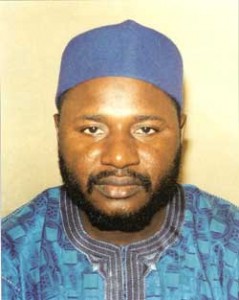The headline is tabloid-esque: Nigerian senator marries 13-year-old girl. Like so much of the recent news from Nigeria, it seems more worthy of a Nollywood script than the political landscape of Africa's most populous country. And, also like so much of the news from Nigeria, the lurid drama making the rounds of international headlines is only the tip of a complex political iceberg.
The details of the story are as follows: Ahmad Sani Yerima, senator and former governor of Zamfara State in Northern Nigeria, was accused several weeks ago of marrying a 13-year old Egyptian girl. More details quickly emerged – Yerima reportedly paid the girl's parents US$100,000 in dowry, the girl's father was Yerima's cab driver, the marriage had to be performed in Nigeria to avoid legal repercussions in Egypt. Bloggers, activists, lawyers and medical professionals protested vehemently as the story developed. Women's rights organizations feared for the girl's health, saying she would be exposed to vesicovaginal fistula (VVF). Human rights groups pointed to the incident as a case of child trafficking.
In an era when the “clash of civilizations” has captured the public imagination and terrorism dominates the international agenda, it can be difficult to disentangle the personal from the political. Yerima has long been controversial for straddling this divide: he was among the leaders that re-introduced Sharia law in Northern Nigeria, and in 2006 came under fire for marrying a 15-year-old girl, whom he divorced two years later. Nigeria's population is roughly divided between a Muslim-majority North and a Christian-majority South, a balance which has been strained by several incidents in the past few months. Yerima's marriage has played into this divide, he justifies the union as being sanctioned by Islam. “I don't care about the issue of age since I have not violated any rule as far as Islam is concerned” he told the BBC – a provocative claim in Nigeria's already charged atmosphere.
Expressing the sentiments of many bloggers, Adeola wrote that religion should not be pulled into what is essentially a question of children's rights:
Let us not hide under any form or religion or culture to deprive children from living or leading their lives normally.
Akin, too, saw religion as a distraction from the real issue:
Should Islam suffer a battering because one man had to satisfy his lust for young flesh [?]
Yerima's actions function, albeit unintentionally, as a sort of activism for his particular interpretation of Islam. Many Nigerian politicians are unwilling to confront the cleavage between the northern and southern parts of the country, despite evidence of increasing tension. In what was widely seen as a gaffe, Ayogu Eze, spokesman for the Senate, initially said the Yerima affair was a private one. But the public thought otherwise and, whether Yerima intended it or no, the union has certainly gotten Nigerians discussing the implementation of Sharia law in Northern Nigeria.
Writing in This Day, Funke Aboyade responded:
Did you think you could, as you had done for eight years in your fiefdom in Zamfara imposing your peculiar brand of the Shari'a on your impoverished citizenry, transport same to the national arena without sanction? Well, here's some news for you, Senator: you've breached a law, a law you swore to uphold. And you will be sanctioned in accordance with that law.
Sokari wrote:
Women Empowerment and Legal Aid [WELA] is demanding that the Federal Government arrest and prosecute Yerima for trafficking but not for forced marriage and rape. Why – because Yerima married the young girl under Sharia law and the age of consent in Northern Nigeria remains 13. This is so typical on all levels. No one has the guts to come out name the man and his crimes and challenge a law, religious or otherwise, which violates the rights of children as agreed by all international and African human rights legislation.
A country with two major religions, three major ethnic groups and more than 500 indigenous languages, Nigeria presents an interesting case study in multiculturalism. But, as in other hybrid societies, integrating diverse cultures under one legal code is often a difficult task. Nine of Nigeria's 36 states, including the senator's own Zamfara state, follow Sharia law which puts the age of consent at 13. But in Abuja, where the marriage was carried out, 13 falls far below the age of consent. Adding to the confusion is the fact that the Federal Government has ratified the Child Rights Convention as well as other child protection treaties which would seemingly override state law and place the legal age of consent at 18. It is in this context that Yerima used Islam to justify the legality marriage. Speaking to the BBC, he said:
I consider God's law and that of His prophet above any other law. I will not respect any law that contradicts that and whoever wants to sanction me for that is free.
Funke Aboyade had a caustic reply:
Really? Why then, Senator, are you in the Senate? Did you or did you not swear to uphold the Constitution of the Federal Republic of Nigeria?
Sokari concluded:
The two issues are the rights of children and secondly the fact that at this moment there are two Nigeria’s – the northern Sharia states and the rest of the country and the former is increasingly removing itself from the Federal structure and picking and choosing which Federal and international laws it will uphold and those it will ignore.
Since the news broke, an investigation into the matter has been launched by the Senate. But Boma Tai-Osagbemi was critical:
Nothing will ever come out of the ‘investigation'…. I suspect this man will still be untouched and unscathed!”
Whether the investigation will yield any results remains to be seen. Whatever the outcome, the incident stands to set an important precedent, at the very least reigniting the the debate on federalism in Nigeria.








13 comments